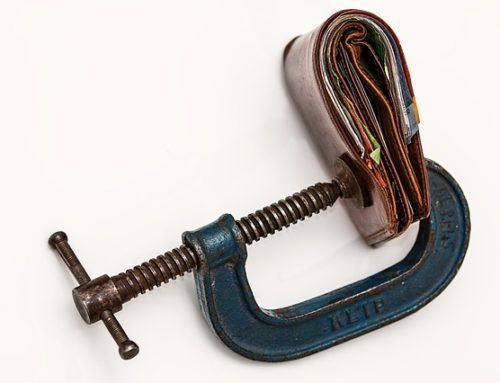How Does Debt Collection Work?
Debt collection laws in Arizona may be found in Section 1692 of Title 15 of the United States Code. Arizona state laws, for the most part, correspond to those legislation. Debt collection organizations and debt collectors are governed and limited in their actions when collecting a debt. There are specific regulations that they must observe, such as how frequently they can call or the language that they are allowed to use. However, keep in mind that these rules will not stop companies from attempting to convince delinquent debtors to pay what they can. In this article, a an Arizona bankruptcy law firm, Phoenix Fresh Start Bankruptcy, will discuss what debt collectors can and cannot do in Arizona.
How is Arizona Debt Collection Law Different from Fair Debt Collection Practices Act (FDCPA)

You must be aware of the key contrast between Arizona’s Fair Debt Collection laws and the FDCPA. For example, Arizona law requires every creditor to secure a license in order to conduct collection efforts within the state. Other laws include providing a debt collector five days after first contacting a debtor to give them a decent written notification informing them of the following:
- The total amount owed
- The original creditor’s name whom the debtor owes money
- A written notice informing the debtor that they are given 30 days from the date of receipt to dispute the amount in concern. They also have the opportunity to get responses and validations within 30 days of submitting the inquiry.
In accordance with FDCPA, a violation of Arizona’s consumer debt collection practices are criminal in nature. An offense is considered Class 1 misdemeanor. (Ariz. Rev. Stat. § 32-1056) If you are a debtor, you cannot sue the collection agency if it violates Arizona state law. Instead, you must take legal action for the violation to the district attorney’s office. In case the creditor agency violated the FDCPA, you can still sue them for monetary damages. If they are proven guilty beyond a reasonable doubt, they may face fines, incarceration, license suspension, and probation for several years.
Who are Categorized as Debt Collectors under the Arizona Law?
Arizona Law defines “collection agency” in an entity “engaged” in collecting financial debts, including anyone who collects debts arising from the conduct of the person’s own organization but collects payments from customers under a different name. Attorneys, real estate brokers, attorneys, and title companies are exempted from some parts of the federal law.
How are Debtors Protected Under the FDCPA?
The FDCPA protects the rights of the debtors in a lot of ways. While we cannot actually prevent the collectors from going after individuals, the FDCPA governs the conduct of creditors on how they are permitted to collect the debts. When collecting debts from debtors, creditors do not have complete freedom or authority. They must follow the rules and procedures that have been established.
In general, Arizona debt collection legislation adheres to the FDCPA principles. Creditors continue to be regulated and constrained by the same rules and regulations that most other states follow. Creditors in Arizona, for example, are still restricted from calling debtors too early in the morning or too late at night. Furthermore, they must still introduce themselves while phoning, or risk fines from the Federal Trade Commission.
What Debt Collectors Can Do?
Request a payment on an expired debt
Every unsecured obligation, such as medical debt and credit card debt, is subject to legal limitations. You cannot be sued for payment after the date has passed and the debt has expired. You do, however, owe it. Debt collectors may continue to pursue payment.
Pressure you
While debt collectors are not permitted to threaten or use abusive language when attempting to collect debts, they are allowed to put you under pressure during the collection process. This includes phone calls, letters, and discussions of filing a lawsuit. All of them are permissible as long as they adhere to legal standards.
Sue you for payment on a debt
Debt collectors are allowed to sue you for payment as a last option. Keep in mind that debts are, by definition, obligations. If these obligations are not met, a lawsuit may be filed. It is common for it to result in bank levies, wage garnishment, or both. The majority of debtors fail to appear in court and hence lose by default.
Sell your debt
If the debt has not yet been collected, the collector has the right to resell it. Thus , if one debt collector stops contacting you about a debt, another will probably take over. If you are unable to pay a debt in full, you can make a written agreement with the debt collector.
Negotiate what you owe
Debt collectors make a lot of money since they buy debts for pennies on the dollar. For this reason, it gives them more ability to negotiate with their consumer. You, as the debtor, can negotiate with the debt collector for a settlement of 30% or 25% of the principal outstanding amount. Remember that the agreement must be in writing, not verbally, so you can have proof about the debt consolidation.
What Debt Collectors Cannot Do?
Using profanity and abusive language
Debtors, as previously mentioned, may pressure you when it comes to collecting debts. They have the option of calling you or sending you an email. They are not, however, allowed to use profanity. They are not entitled to offend you personally or in any other way. Debt collectors must conduct themselves professionally in order to work on the debt settlement.
Use of threat
Under the FDCPA and other Arizona statutes, any threat is prohibited. As a debtor, you have the right to file a complaint with the district attorney if a bill collector threatens you with anything in order to collect money from you. This threat also includes the threat of seizing all of your possessions.
Annoying, harassing, and abusing
Creditor harassment is one of the most common problems. Debt collectors that use harsh or abusive language to collect money from debtors may face legal consequences. As debt collectors, they are obligated to follow the rules. They cannot contact the borrowers too early in the morning or too late at night. While the FDCPA does not specify the maximum number of calls that debt collectors are permitted to make each day, if a debt collector contacts you every 15 minutes, this may be deemed as debt collector harassment.
Threatening to publicly humiliate you
Threatening to publicize you as a debtor is unquestionably a violation of your rights. For example, if mailing you a letter is their way of reminding you of your obligation, they cannot state on the outside of the envelope that it is for debt collection. Debt collectors are also not allowed to send postcards to you. Debt collection practices and activities should, by nature, be private.
Using inappropriate means of communication
Debt collection agencies and debt collectors are permitted to contact the borrower’s family members in order to authenticate the borrower’s information. It is important to note, however, that debt collectors must identify themselves as having the intent to collect a debt. If a third party starts asking questions, the collector must provide the name of their company. When a lawyer is representing the borrower, the debt collector can only speak to the lawyer and not directly to the borrower. Debt collectors are permitted to contact the borrower directly if the lawyer is unresponsive to their calls.
Indulge in unethical practices
The FDCPA is clear and has a list of what constitutes unfair practices. For example, misrepresenting and threatening the debtor by claiming to be a governmental agent or an attorney trying to collect the debt when in reality, they are not. This is not allowed and is deemed unlawful. Similarly, debt collectors are not allowed to refuse to provide the identity of the debt collection agency or firm for which they operate. Moreover, they must always be truthful about the entire amount to be paid.
Become false creditors
Some collection agencies will falsely declare that someone owes them unpaid debt when this is not true at all. They will call you and notify you that you owe them a certain sum or outstanding debt. If this happens, you, as the recipient of the phone call, can request a validation notice or credit report on the alleged debt from the creditor or collection agency.
Eliminate Your Debts Today!
If you are a debtor with an unresolved debt, contact Phoenix Fresh Start Bankruptcy for legal assistance. We provide prudent guidance and effective legal remedies. It is our pleasure to help you in reaching your debt-free goals, and we ensure that your case is handled meticulously by our competent lawyers. If you believe that filing a petition for bankruptcy is a good choice for you, schedule a consultation today!









